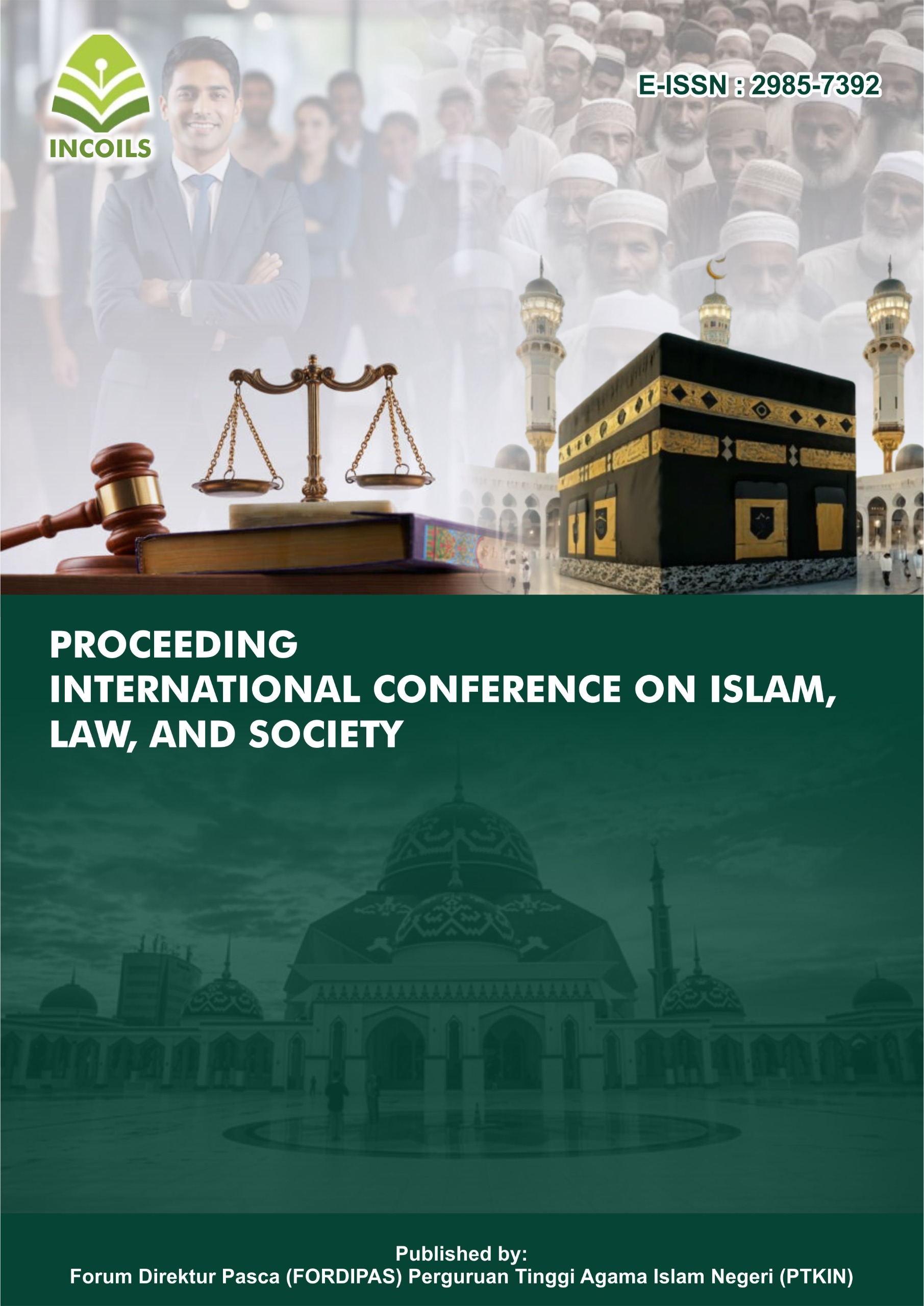INDONESIA STATE CONSTITUTION IN ISLAMIC STATEMENT PERSPECTIVE
DOI:
https://doi.org/10.70062/incoils.v2i1.48Keywords:
Constitution, State of Indonesia, Islamic State AdministrationAbstract
It can be said that the history of the Indonesian Constitution has gone through various stages of development. From each stage a unique model of state administration was born, until the idea emerged to amend the 1945 Constitution due to past trauma, especially the New Order political practice which used the constitution for the interests of the people who were centralized and authoritarian power. Changing the constitution (UUD) is certainly not an easy thing. Because the constitution is the main goal of the state to regulate various basic and strategic issues, starting from the issue of the power structure and the relationship between the power of state bodies and human rights. The process of changing the Constitution from 1945 took place four times in stages. The four stages of the amendment, which were thoroughly examined by observers, had several flaws, among which sparked the idea that a constitutional commission should be formed to help resolve and correct these flaws for future amendments. Basically, according to experts, the State in Islam describes the principles of Islamic state administration in its studies, and the principles of state administration contained in the Qur'an can be formulated in the basic principles of Islamic political law, for example: the principle of sovereignty; the principle of justice; Principles of Reasoning and Ijma'; The principle of equality; the principle of rights and obligations of the state and the people; The principle of amar ma'ruf nahi munkar.
References
A Gaffar Aziz, Berpolitik Untuk Agama, Pustaka Pelajar, Yogyakarta, 2000.
Abdullah, Tujuan Negara Dalam Islam Menurut Yusuf Al-Qardhawi, Asy-syari’ah 19, no. 1, 2017.
Ahmad Husein Arif Al Anang, Genealogi Aliran-Aliran Politik Dalam Islam, Fajar Historia: Jurnal Ilmu Sejarah dan Pendidikan 4, no. 2, 2020.
Al-Mawardi, Ahkam Sulthaniyah: Sistem Pemerintahan Khilafah Islam, Qitshi Press, Jakarta, 2014.
Arake, Agama Dan Negara Perspektif Fiqh Siyasah, Al-Adalah: Jurnal Hukum dan Politik Islam 3, no. 2, 2019.
Backy Krisnayuda, Pancasila & Undang-Undang Realisasi dan Tranformasi Keduanya dalam Sistem Ketatanegaran Indonesia, Jakarta, Prenadamedia Group, 2016.
Bakry Noor MS, Pancasila Yuridis Kenegaraan, Penerbit Liberty, Yogyakarta, 1994.
Fahmi, Prinsip Dasar Hukum Politik Islam Dalam Perspektif Al-Quran, PETITA: Jurnal Kajian Ilmu Hukum dan Syariah 2, no. 1, 2017.
Harjono, Legitimasi Perubahan Konstitusi Kajian Terhadap UUD 1945, Yogyakarta, Pustaka Pelajar, 2009.
Jimly Assiddiqie, Pokok-Pokok Hukum Tata Negara Indonesia, PT Bhuana Ilmu Populer Kelompok Gramedia, Jakarta, 2007.
Kaelan, Pendidikan Pancasila, Paradigma, Yogyakarta, 2004.
Lukman Arake, Agama Dan Negara Perspektif Fiqh Siyasah, Al-Adalah: Jurnal Hukum dan Politik Islam 3, no. 2, 2019.
Miriam Budiardjo, Dasar-Dasar Ilmu Politik. Penerbit Gramedia Pustaka Utama, Jakarta, 2007.
Muhammad Nur Murdan, Membangun Hubungan Antara Umat Dan Kekuasaan, Konsep Negara Dalam Piagam Madinah, Jurnal Pappasang: Jurnal Studi Al-Qur’an-Hadis dan Pemikiran Islam 1, No. 1, 2019.
Mukrimin, Islamic Parties and the Politics of Constitutionalism in Indonesia, Journal of Indonesian Islam 6, no. 2, 2012.
Padmo Wahjono, Indonesia Negara Berdasarkan Atas Hukum, Jakarta, Ghalia Indonesia, 1986.
Sigit Ridwan Abdullah, Tujuan Negara Dalam Islam Menurut Yusuf Al-Qardhawi, Asy-Syari’ah 19, no. 1, 2017.
Toto S.Pandoyo. Ulasan Terhadap Beberapa Ketentuan Undang-Undang Dasar 1945, Yogyakarta, Penerbit Liberty, 1981.
Yopi Gunawan & Kristian, Perkembangan Konsep Negara Hukum & Negara Hukum Pancasila, Bandung, PT Refika Aditama, 2015.
Downloads
Published
How to Cite
Issue
Section
License

This work is licensed under a Creative Commons Attribution-ShareAlike 4.0 International License.







